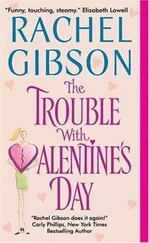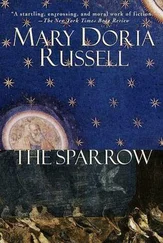Nevertheless, and for the first time in my life, I dared insist and I got my way. I named the pup Rosie. Before the day was over, I was so in love, it was difficult to leave her, even to go to sleep.
The plan was for Mumma to raise Rosie until she was housebroken. (House-training, I must tell you, is a formality that can elude young dachshunds for some time; this is particularly true in climates that affront their sensibilities with outrageous meteorological insults. Rain, for example, or a startling gust of wind.) I always visited Mumma on weekends, of course, but knowing Rosie was waiting for me would make the routine a treat. When the school year was over, I would return as usual to spend the summer in Cedar Glen, helping Mumma with the garden and the canning. In autumn, I would take Rosie back to Cleveland with me. Either my landlady would agree to this, I decided, or I would just have to find a new place to live.
Mumma had the satisfaction of being right about Rosie in some ways. My little pet was indeed a poor specimen of her breed. She matured to sixteen pounds—on the awkward border between the miniature and the standard for the breed. Her coat grew in long but thinnish. She was timid as well as unprepossessing, and spent her puppyhood hiding behind boxes in the kennel, darting out to steal food or toys from the stronger members of her litter.
“She’s sneaky,” Mumma would report whenever I telephoned to check on her and Rosie. “She plots and she schemes.”
“She’s clever,” I’d reply, “and resourceful.”
“Well, I don’t know about that. ”
Those were the last words Mumma said to me, in life, a few days before the influenza swept my family away.
Weeks later, when Mrs. Motta handed me all those awful telegrams, I hardly reacted at all. I was so … depleted, I suppose, that I simply did not have the energy to weep.
In fact, I did not cry at all until I was strong enough to meet the lawyer at my mother’s house. You see, Mr. Reichardt brought Rosie with him that morning. She remembered me. And she came to me when I called.
Well, three times out of five, anyway. Dachshunds have their own agenda and can be stubborn about seeing their plans through to completion. What Rosie lacked in consistency, she made up for in enthusiasm. Most of the time when I called her name, she sprinted back, her long ears cocked and flying like a little girl’s pigtails. Each encounter was a glorious reunion, even if we’d been parted for only a minute or two. I had never felt so beloved.
She went with me everywhere, and there was so much work to do! Mr. Reichardt took on as much as he could of this necessary tidying of lives cut short, but he had many such estates to settle, so a great deal fell to me. The probate courts were jammed. Rosie and I spent hours waiting in queues that often turned out to be the wrong ones. More than once, someone in the line fainted, sending panic through the room. Since we’d been caught out by the second wave of influenza, illness was never far from our minds.
Douglas and Lillie and the boys had lived on the campus in a house provided for them by Oberlin. The dean told me that I could take all the time I needed to vacate the premises, but then he checked my progress every day, and frowned significantly when a bare week had passed. Not wanting to be a bother, I had their belongings boxed for transport and delivered to Mumma’s house in Cedar Glen. I turned next to Uncle John’s estate, hoping it would be relatively simple. He was a bachelor lawyer who had left his affairs in good order. Even so, there were many accounts to process and outstanding fees to collect, and his apartment to clear out, on top of the legal mechanics of settling any estate.
I was beginning to realize that a surprising amount of money would come to me eventually, but in the meantime, ready cash was in short supply. I hoped to raise funds by selling Uncle John’s furniture, but with so many estate liquidations, secondhand dealers had more stock than they could handle and paid just pennies on the dollar. And there was no market for anything Victorian anymore. Brash confidence might rule the business day and boozy flamboyance might dance through the night, but when people left the speakeasies? They wanted to go home to cozy houses filled with brand-new suites of “colonial” oak or the awful stuff that people of taste called “Flapper Phyfe.” As the weeks dragged on, the final expenses of three households piled up. The costs of caskets and burial plots had been added to all the usual bills: electricity, coal, telephone; grocery accounts, department store purchases. My salary from Murray Hill School had ceased the day I fell ill, and I fretted constantly about how long I could put off creditors while the estates were in probate.
Then, while I was going through the contents of my brother-in-law’s files, a small miracle was revealed: Douglas had carried a life insurance policy. Though it was meant for Lillie and the boys, I was listed as contingent beneficiary, so the money would come to me: un-looked for, unwished for, but welcome all the same.
My financial worries were allayed, but there was still the physical labor of sorting through the entirety of other people’s things. Minute by minute, I made thousands of little decisions: what to keep, what to sell, what to give away, what to have hauled to the dump. Until you’ve done it, you have no idea how draining that can be.
Mumma’s death seemed only half real to me, surrounded as I was by her possessions. Even before I shipped Lillie’s things home, Mumma’s house—mine now, I slowly realized—was jammed with a half century’s accumulation, and there was no inch of it that did not speak to me of her.
Her desk, a massive rolltop in a makeshift office, was formidably well organized, but the sheer volume of paper was daunting. There were yellowed newspaper clippings about dog shows, records of bloodlines, AKC registrations. Feed supplies and veterinarian bills. Records from the sewing machine business: accounts receivable and accounts payable, employee pay stubs several decades old. Mail of all kinds, each item read and returned to its carefully slit envelope, dated, and filed, “just in case.” Everything had to be opened, read, and dealt with.
Mumma had lived through lean times: nothing potentially useful was ever discarded. Old clothes, old shoes, old handbags. Empty bottles of all descriptions, washed and stored in a closet. Bits of string— short lengths tied end to end, wound like yarn into balls. There were oak-slat baskets in every corner, filled with quilt pieces and rag rugs in progress; cigar boxes held skeins of ribbons, hoarded buttons, and wooden spools of thread. She kept the empty spools, as well. Just in case.
As her only heir, I would benefit from Mumma’s parsimony, and from the carefully conserved proceeds from the sale of the sewing machine business, but I simply could not think in those terms, not yet. Overwhelmed, I often wandered from room to room, helpless in the face of it all, alone but surrounded by the dead, for every flat surface was peopled with framed studio portraits. Ernest and Lillian as children. Lillian and Douglas at their wedding. A series of the two boys, almost growing up. A stranger might have thought Mumma had only two children, but pictures of me were nearly always disappointing, you see. Why pay a photographer for something that wouldn’t bear looking at? I understood this, even as a child, though I won’t deny a lingering sense of invisibility.
I found other evidence of my existence, however: my grammar school report cards, tied with blue yarn, were tucked away in a desk drawer. These, Mumma had evidently decided, were suitable keepsakes of her eldest child’s youth. And then there were the ghosts of birthdays past that she had stashed away. Dusty candy boxes filled with fossilized chocolates. Books of poetry, their spines uncracked. Heaps of unused embroidered handkerchiefs. I sometimes broke down in tears when I came across a Christmas present that I had carefully selected for her, and that she had left untouched for years at the back of a cupboard or on the top shelf of a bookcase. It’s the thought that counts, of course, but it was disheartening to find evidence of how consistently I had failed to please her.
Читать дальше












